For the first time, we are making video footage of the UK Hypnosis Convention lectures available to the public. For the 2019 event, we filmed the lectures in the main lecture theatre (The York Theatre).
Before we tell you more about the videos of the presentations here is a free look at the highlights from the whole weekend for you to enjoy; turn on your sound!
For those that have been in the ‘bunker’ (no longer in use) you’ll be aware that the lighting was pretty poor in there, so the quality of the video footage is not amazing, though the sound is ok and the learning truly wonderful.
For an investment of £49.00, you will get streaming access to
- The lectures listed below (all one hour unless otherwise stated)
- Footage of the UKHC 2019 Keynote Presentation as delivered by Anthony Jacquin
- Footage of the after-dinner speech given by UKHC master of ceremonies Adam Eason
You will have access for life and be able to revisit and revise these lectures with no time limit. If you are interested in the videos of the 2022 and 2023 events too, please visit this page over at Adam Eason’s college website.
Please note, your PayPal invoice and receipt will be from UKHC organiser Adam Eason’s college, which hosts the videos.
Day One:
Jørgen Rasmussen: No Self, No Problem (two-hour presentation)

Almost all of our thinking is self-referential, and this self-referential thinking revolves around enhancing, bolstering and protecting a seemingly PERMANENT, STABLE and SEPARATE self.
However, this sense of being the agent or “captain of the ship” is an illusion, and falling for this illusion and maintaining it creates a lot of unnecessary suffering.
This presentation is about how you can help your clients (and yourself) to see through this illusion as it relates to their presenting issues.
Paradoxically, healthy psychological development (and many changes ) require a sense of self for the purpose of healthy boundaries and clear communication. This is also a seminar about how to help clients manage this seeming paradox.
Anthony Jacquin: The self-hypnosis laboratory
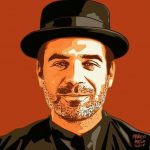
After training, many hypnotists seem to stop making progress as subjects, as if their hypnosis ability is fixed. Many don’t commit to the regular use of self-hypnosis in their daily life.
In this lecture you will be encouraged to re-engage as the subject; to treat yourself as your own self-hypnosis laboratory, and build a regular self-hypnosis practice.
Michael C. Anthony: How to Build your Hypnosis Business with Public Performances
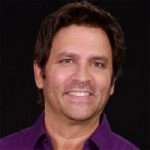
Do you want to keep a stream of clients coming to you consistently? Do you want to make extra income outside of your practice?
Michael C. Anthony is the founder of Stage Hypnosis University and in his MasterClass, you’ll learn how to create a public performance for fun and profit while building your clientele FAST!
Tim Box: Practical ways of working without trance

I have worked without any type of trance or ‘eyes closed’ model for the last five years.
This presentation will show how to work trance free with all types of client and explain why this is potentially a much more impactful and empowering way of working.
I will also explain how this enables us to make sure we never hear a client say ‘it didn’t work’.
Sean Michael Andrews: The Dave Elman Induction

Developed over 100 years ago, the Dave Elman induction is the most effective way to achieve hypnosis.
This is the perfect induction to use in a clinical practice, but it is also an effective group induction that a hypnotherapist can use in group sessions or to identify excellent subjects for demonstrations.
Freddy Jacquin: Everyday applications of hypnosis that anyone can use.
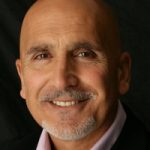
Demonstrations and explanation of the use of hypnotic techniques created through the utilisation of fascination and emotion that can be used by anyone.
How to create a naturally occurring enhanced learning state/(hypnosis) in moments, to help others.
Fredric Mau: The Three Doors (two-hour presentation)

When in doubt, treat for anxiety. Three Doors process invites the client to engage the creative unconscious to experience different responses at a visceral, emotional level, as well as conscious choice.
Almost all psychotherapeutic issues are anxiety-driven, and anxiety makes all general medical conditions worse.
This is my core go-to process for general anxiety reduction. It almost always helps significantly – and when it doesn’t work – that lets me know something strange is afoot.
Day Two
Gary Turner: Working Effectively with Anger
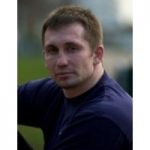
Anger is an integral part of being human. We all have it at times. When anger adversely affects daily life, then it becomes a problem. This talk delivers knowledge, understanding, and practical solutions enabling any therapist to work effectively with anger
Kev Sheldrake: Hacking Hypnosis – From Practice To Theory

Head Hacking was a whirlwind.
We developed training courses and products; we popularised “street hypnosis”; we performed at events and in TV shows; we consulted to magicians and advertising agencies; we travelled the world and met our heroes; we ran a respected hypnosis conference; and we developed a new approach to suggestion built on academic research.
I will reveal the untold story from inside Head Hacking, the hypnosis company that tried to change the world.
Adam Eason: Hypnosis Quirkology

There are many topics in the field of modern hypnosis about which speculation has been rife for decades. Much has been written on the powers and dangers of hypnosis. What happens when you try to create warts, induce pain or heal broken bones using only hypnotic suggestion? What happens when hypnosis is used to recreate delusion (such as erotomania or conversion hysteria) or out-of-body experiences (such as those described during near-death experiences) in order to study such a phenomenon?
Much experimental evidence has been collected regarding all of these topics and in this presentation, Adam will give a reliable account of the quirkiest and seemingly bizarre hypnosis research.
Dr Ben Parris: How effortless is responding to suggestions?

Involuntary, effortless responding is thought to be a key marker of responding to hypnotic suggestion (Bowers, 1982), and has been referred to as the classic suggestion effect (Weitzenhoffer, 1980).
However, there is evidence of regulation of hypnotic responses, and the demonstration of active attention-demanding attempts to fulfil the requirements of hypnotic suggestions (Lynn, Rhue & Weekes, 1990).
This talk will assess the evidence for effortless responding under suggestion.
James Tripp: To Trance or not to Trance

A title; yet no outline, no script and completely off the cuff James Tripp offers up an intriguing and entertaining exploration of things hypnotic.
James stepped in at the 11th hour to cover for the planned presenter and delivered a unique James Tripp classic.
Prof. Zoltan Dienes: Phenomenological control as cold control
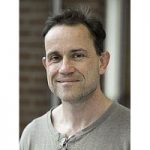
I first review recent work from our lab which construes hypnotisability as an example of a more general trait of capacity for phenomenological control, which people can use to create subjective experiences in many non-hypnotic contexts where having those experiences fulfils people’s goals; and second I review some recent work which construes phenomenological control as a specifically metacognitive process, where intentional cognitive and motor action occurs without awareness of specific intentions (cold control theory).
In terms of the reach of phenomenological control, I argue that various laboratory phenomena, namely vicarious pain, mirror-touch synesthesia and the rubber hand illusion are to an unknown degree a construction of phenomenological control.
The argument can, of course, be extended in principle to other experiences people have in the lab and outside of it. For example, the experience of the absorptions in states of concentration meditation may to an unknown degree depend on phenomenological control. In terms of the reach of cold control, I will just consider the relation between mindfulness and cold control (seen as a lack of mindfulness of intentions).
Dr Michael Heap: Hypnosis in Court
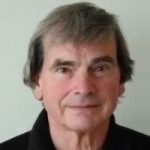
Occasionally, experts in hypnosis are required to prepare reports for the civil or criminal courts in cases where hypnosis or a similar procedure has been used or may have been.
This presentation will describe a range of such cases from the speaker’s practice that raise questions relating to such matters as hypnosis and will, the reliability of memories elicited during hypnosis, reality-testing during hypnosis, and ultimately the nature of hypnosis itself.
Dr Devin Terhune: The cognitive neuroscience of the highly suggestible person

Verbal suggestions are capable of eliciting pronounced changes in cognition and perception and their neurophysiological substrates, particularly in highly suggestible individuals. I will describe our recent research aiming to elucidate the neurocognitive profile of these individuals. This research adds to accumulating evidence implicating brain networks supporting higher-order awareness and cognitive control and highlights some of the vulnerabilities conferred by high suggestibility. Studying this unique population offers a valuable path to understanding the mechanisms of suggestion and germane phenomena.
Day Three
Mike Mandel: Metaphors Be With You! (two-hour presentation)
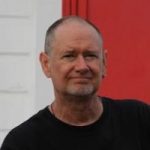
2-hour intensive workshop with practical application. Metaphors for speakers, therapists, hypnotists and coaches. We unpack numerous types of powerful metaphors for change, including isomorphic, general salubrious and multiple embedded loops. Attendees will both learn and apply the methods taught in class.
Graham Webber: Helping with the front line

Being a serving soldier I know the difference in languages, meanings and how soldiers think about serving within the forces.
During this presentation, I will take you through how to understand the military mind. How military personnel speak, what is meant by their slang, different activities that take place and some break downs of what they may be exposed to on the battlefield?
This will assist you as the therapist with the soldier in front of you in the therapy room for understanding, limiting pauses for questions which in turn will assist with rapport.
James Brown: Freedom to Induce

In this lecture, James will demonstrate how powerful inductions can be when you are NOT tied to a formulaic process. The ability to create inductions, know WHY they work and have the understanding when they are redundant.
Rather than relying on a one size fits all approach, James will show you why it’s important to choose the induction for the participant. Still buying the latest hyped induction? No more! Be creative and make your own!
Eugen Popa: Belief and Habit Deconstruction
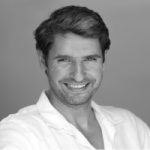
All of our beliefs and habits are nothing else but constructs of our minds.
These constructs are present without us being aware of them and they run our lives.
In this class, you will learn how to identify and deconstruct them and how to create new beliefs and habits that you desire!
David Shephard: The Business Of Therapy

David Shephard co-foundered FixMyMind with his business partner James Mallinson. FixMyMind has gone on to become one of the most successful therapy practices in the UK.
During this session David will explain how they did it from a business perspective rather than a therapy perspective. There are 9 things essential to building a successful therapy practice and during the session he will share these with you.
If you were to start implementing them right after his session your therapy business is guaranteed to become more successful. David and James have proven that they work.
Felix Economakis: The 4Rs – hypnosis-like results without hypnosis

A live therapy demo showcasing some of the range of skills present with the 4Rs approach which is highly effective in the treatment of phobias, traumas and anxiety disorders.
Nick Kemp: All the way through the looking glass with Provocative Change Work (two-hour presentation)

A two-hour introduction to the PCW model
Demonstration of the two PCW techniques Steve Andreas confirmed as the most effective of all techniques he had come across in NLP & personal change
Working in the here and now free from the limitations of step by step protocols
Real-life examples of PCW used in sports, business and therapy for client success. The art of provocation and the core 27 stances used by a PCW practitioner. PCW metaphor elicitation and challenges for successful coaching outcomes. Accelerated hypnotic patterns and fractionation for effective client change. Psycho education and micro-adjustments to provide the difference that makes the difference in client work
